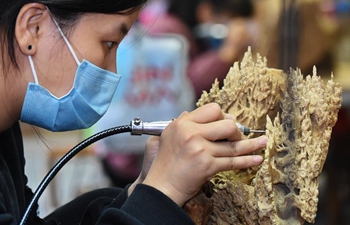LOS ANGELES, Dec. 22 (Xinhua) -- Hundreds of new genes linked to blindness and other vision disorders have been identified in a screen of mouse strains, according to a new research of University of California, Davis.
Many of these genes are likely important in human vision and the results could help identify new causes of hereditary blindness in patients, said a release of the university on Saturday.
The research is published Friday in Nature Communications Biology.
"This is extremely valuable for people with hereditary eye disease," said Ala Moshiri, associate professor of ophthalmology and vision science in UC Davis, School of Medicine and Eye Center. "The whole ophthalmic community is going to start using these data."
The results are the latest to come from the International Mouse Phenotyping Consortium, of which UC Davis' Mouse Biology Program is a founding member.
The research team combed the consortium database for genes linked to eye and vision defects and identified 261 new genes linked to blindness.
"Now eye centers that do DNA sequencing can call back patients and screen them for these new genes," Moshiri said.
While the mouse and human genomes clearly differ, most human genes have an analogous counterpart in mice, Moshiri said. The UC Davis team is collaborating with eye centers at Baylor College of Medicine in Houston and the University of Iowa, to check the newly identified mouse genes against their human equivalents.
The new genetic information could also enable new therapies for hereditary eye disease. "We expect that more and more of these genetic diseases will be treatable," Moshiri said.













